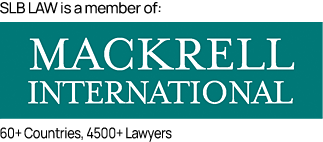Tax Advisor’s Liability
In the complex world of taxes, you have to be able to rely on experts. If a tax advisor breaches contractual obligations and causes damage as a result, the question of professional liability arises. Our tax advisor liability experts know the typical pitfalls and use their years of experience for you, both in and out of court – efficiently and discreetly.

Breach of professional duties
The duties of a tax advisor when handling a client arise from the Tax Advisors Act and the individual contract with the client. Irrespective of the specific subject matter and scope of the work, tax advisors are also legally obliged to act on their own responsibility, to carry out assignments conscientiously and to undergo further training. If such a duty is negligently or intentionally breached, the tax advisor is liable. The standard applied by the courts is very strict.
Typical cases of tax consultant liability are
- False or misleading tax advice.
- Failure to submit tax returns.
- Errors in the calculation of taxes.
- Failure to comply with legal changes.
- Failures in bookkeeping or documentation.
Professional liability insurance
Tax consultants are obliged to take out professional liability insurance with a minimum sum insured of € 250,000 per case and € 1 million per year. If the damage is higher or involves further cases, the tax consultancy firm or the tax consultant is liable with their own assets.
In order not to risk the insurance cover, tax consultants usually coordinate every step with their insurance company in the event of liability. Often, the tax consultant’s lawyer is also recommended or mandated by the insurance company. This makes it difficult to negotiate out-of-court solutions.
How we can help you
- Professional expertise: Our lawyers specialize in tax advisor liability and have in-depth knowledge and years of experience in this area.
- Personal support: Every case is unique. We offer individual advice and tailor-made solutions.
- Commitment to good results: Your success is our goal. We strive to achieve the best possible result for you.
- Tax matters can be complicated and stressful, especially when you have to deal with the consequences of incorrect advice. Our law firm is at your side to protect and safeguard your rights.
Your contact
If you have any questions about Tax Advisor’s Liability, please do not hesitate to contact us. Please call or write us.
„My strength: leading negotiations - strategically and efficiently.“
Certified Specialist Lawyer for Banking and Capital Market Law
(Fachanwalt für Bank- und Kapitalmarktrecht)
Certified Specialist Lawyer for Corporate and Commercial Law
(Fachanwalt für Handels- und Gesellschaftsrecht)














